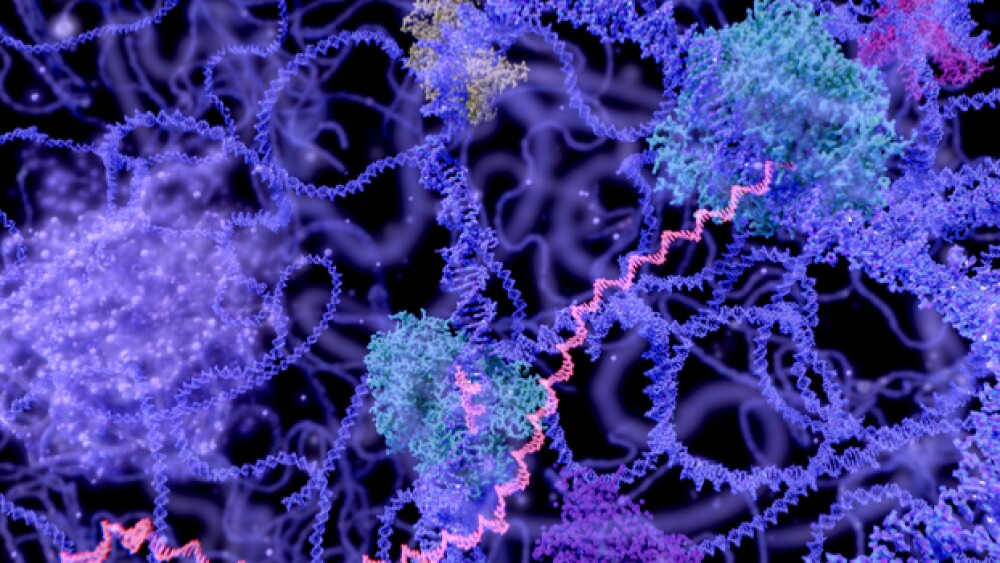San Diego-based Arcturus Therapeutics announced it was reassuming 100 percent of its global rights for ARCT-810, a messenger RNA (mRNA) drug to treat OTC Deficiency. The drug previously had a 50/50 collaboration between Arcturus and Tubingen, Germany-based CureVac AG.
San Diego-based Arcturus Therapeutics announced it was reassuming 100 percent of its global rights for ARCT-810, a messenger RNA (mRNA) drug to treat OTC Deficiency. The drug previously had a 50/50 collaboration between Arcturus and Tubingen, Germany-based CureVac AG.
ARCT-810 is based on mRNA and uses Arcturus’ proprietary lipid library and its LUNAR delivery platform to safely and effectively deliver OTC mRNA to hepatocytes (liver cells). The therapy is designed to enable OTC-deficient patients to produce healthy function OTC enzymes in their own liver cells.
The company indicates that its preclinical development program for ARCT-810 is on track. It plans to file an Investigational New Drug (IND) application for ARCT-810 with the U.S. Food and Drug Administration (FDA) in the fourth quarter of this year.
The two companies have other collaborations using CureVac mRNA and Arcturus LUNAR tech, which will continue.
OTC deficiency, or ornithine transcarbamylase deficiency, is caused by mutations in the OTC gene. This leads to a non-functional or deficient OTC enzyme. It is the most common urea cycle disorder. It is a life-threatening disease. The conversion of ammonia to urea does not occur, and ammonia accumulates in the blood. This acts as a neurotoxin and liver toxin, leading to vomiting, headaches, coma and death. It is an inherited disease that can cause developmental problems, seizures and death in newborn babies. It is most common in boys.
“We have had a very productive collaboration with CureVac on ARCT-810 and are pleased that we have secured all the rights to this clinical development candidate,” stated Joseph Payne, president and chief executive officer of Arcturus. “We are enthusiastic about the value of ARCT-810 and we believe it has the potential to be a transformational treatment for patients suffering from OTC deficiency. Importantly, Arcturus has the resources and expertise to advance this program into the clinic. We are pursuing an aggressive development timeline with an IND filing planned for this year. We look forward to our continued collaboration with CureVac to advance therapies for patients in need of potential new treatment options.”
mRNA therapeutics are long on potential but haven’t broken into the market yet. The idea is to use the body’s own molecular machinery to produce whatever drug or protein is needed. mRNA is a family of RNA molecules that transport genetic information from DNA to the ribosome, where it specifies the amino acid sequence that creates proteins. The theory is that by coding their own mRNA, these companies can insert that code into the cells and turn them into protein factories.
The most prominent player in the field is Moderna, although it has yet to get a product to market. The company went public in December 2018, raising $604 million with its IPO. Moderna has a development pipeline of 21 programs. Ten are in the clinic and another three have open IND submissions. Nine of those in the clinic are in Phase I and one is Phase II.
In August 2018, Pfizer inked a collaboration deal with Mainz, Germany-based BioNTech to develop mRNA-based vaccines to prevent the flu. And earlier this year, mTranslate Bio announced that its Phase I/II clinical trial of MRT5005, an mRNA treatment for cystic fibrosis, was ongoing. It also announced that its MRT5201, an mRNA candidate for OTC deficiency, was advancing, with the trial expected to begin in the first half of this year.
CureVac on October 23, 2018, announced it had initiated its Phase I dose-escalation trial of its mRNA-based rabies vaccine, CV7202. And on Jan. 8, 2019, the U.S. Patent and Trademark Office (USPTO) granted CureVac a fundamental patent for the use of mRNA for the Respiratory Syncytial Virus (RSV) F-protein to be used to vaccinate infants. CureVac also has deals with Sanofi, Eli Lilly, and Boehringer Ingelheim.





